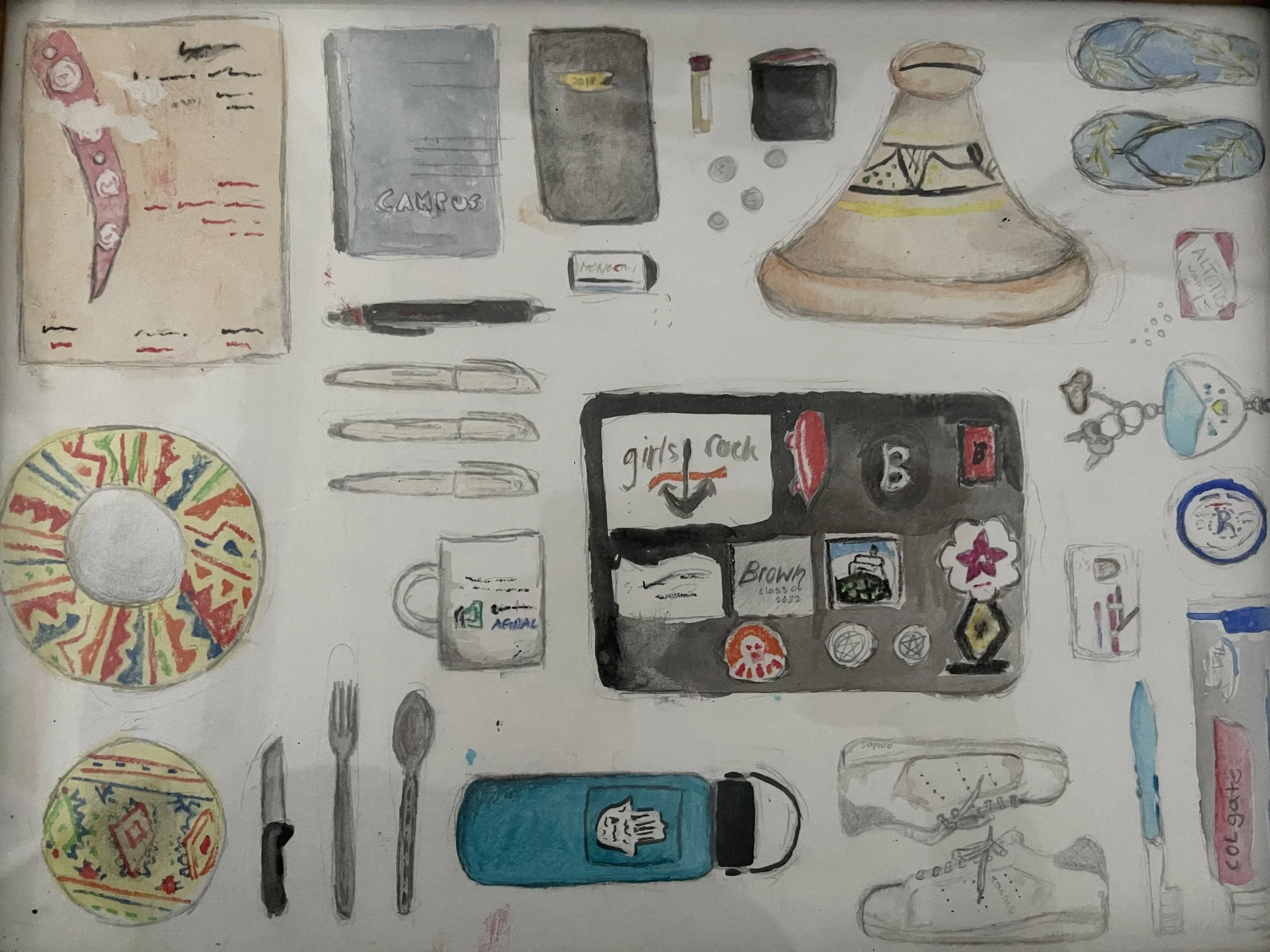"All the Things You Didn't Know You'd Learn Abroad" by Myrna Al Tall and Colleen Daley
We asked our Program Managers in Morocco and Jordan, Colleen Daley and Myrna Al Tall, to consider the skills with which they see students leave the program. While of course all students have different experiences, these durable skills are ones that most students have improved by the end of their time abroad.
From Myrna Al Tall, Program Manager, Amideast/Jordan
Studying abroad will definitely provide an opportunity for students to discover a new culture, enjoy delicious food, and meet many interesting people. You will also notice that you have gained much more on an academic and personal level
Arabic language: Students might have studied Arabic for a semester or two before arriving to Jordan, yet living with a host family, taking daily taxi rides and chatting with taxi drivers helps students with learning the daily Arabic cultural phrases and proverbs which students will not use or learn by only sitting in a classroom. Students enjoy using phrases to impress their host family such as “ شو في ما في " which is the Jordanian way of saying “what’s up!”
Communication: Misunderstanding is one of the challenges students face while studying abroad, due to the language barrier and cultural differences. However, this leads students to work on their communication skills with their host families and language partners and builds their confidence as they learn from their mistakes.
Flexibility and Adaptability: Going to study abroad, especially in the Arab world and specifically in Jordan, students build a sense of adaptability and flexibility through experiences like not knowing how to cross the streets, how traffic works, how to great people and still be respectful, trying a new meal with their host family for the first time, or where their host family may take them on the weekend.
Patience: As students try to figure out how to say different basic Arabic phrases, learn how to find the way to their house, and also live on Jordan’s “flexible timing” students not only practice being patient but also end up enjoying Jordanian’s social work environment. They learn that spending 5 minutes drinking tea and socializing with people is part of the social integration and creates opportunities for language practice and building a work network.
From Colleen Daley, Program Manager, Amideast/Morocco
Persistence: Accomplishing anything in Morocco takes a little longer than it might in the US. This is because Moroccans value relationships and trust over efficiency, and, for our students here at Amideast, they need to figure out who to go to, and how to ask for what they need, usually in a mix of French and Arabic. Students have learned, for example, that buying schoolbooks in Morocco can take days or weeks, not hours. They gain this sense of persistence by going to multiple places to look for these books, asking for help from staff, and going with their language partners to learn how to find used books.
Patience: Linked to persistence, students often report developing a stronger sense of patience while they are abroad with Amideast. Sometimes in traveling throughout Morocco, students travel long distances on trains or buses without access to internet or any of their usual distractions or modern conveniences. In order to get to their destination, they have no choice but to wait, and through necessity, they learn how to have a slower sense of the world and how to be patient in waiting.
Confidence: Students often report having gained confidence in themselves and their abilities after studying abroad with Amideast. Having gone to live in a new city for 4 months, fighting with two, sometimes three new languages, getting to know a new host family, and having to rely on themselves more than they are used to, all these new experiences can make the challenges they faced back at home seem smaller and more manageable.
Language Skills: Although it may seem obvious at the beginning, students are still always impressed by the language they learn while abroad compared to being at their home universities. There is no substitute for the immersive experiences that students go through while abroad, whether it’s their French classes taught fully in French, or their Darija bonding moments with their host families. Learning French or Arabic in context is near-impossible in the United States, and the language gains our students make while at Amideast are invaluable to those who want to continue to develop their language for professional use.
Networking: Some students think that study abroad is a one-off experience, where they go to experience adventures, and then come home and resume their ‘normal’ lives. The students who benefit the most from study abroad, however, take the opportunity to nurture and develop the connections and relationships they make abroad. The Arabic-learning community in the United States is relatively small, and Amideast staff and teachers are well-connected in this community. Students can benefit from maintaining their Amideast network by anything from recommendation letters, alumni happy hours, or being informed of opportunities that are available in the Arabic-speaking job space that they may not hear about from their home networks on campus.






